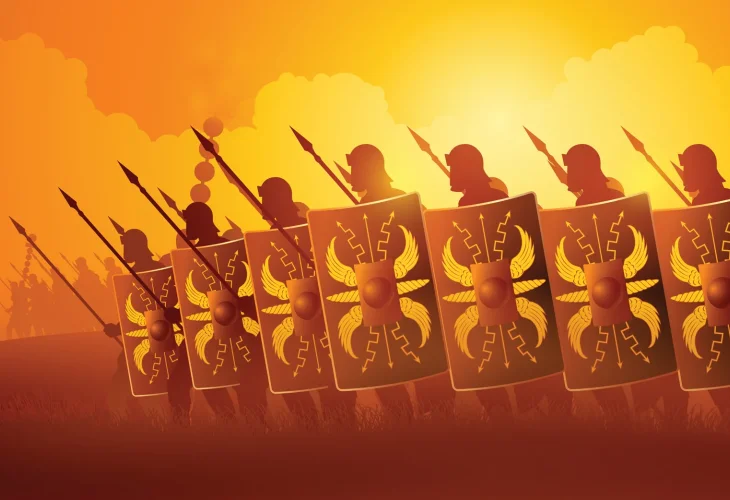The Remarkable Victory of John Hyrcanus over Antiochus
John, the High Priest, was a war hero and led many of his father’s battles. Yet, Antiochus Sidetes was relentless. As the king of the Seleucid Empire, why would he yield to a Jew ruling a small kingdom?
 (Illustration: shutterstock)
(Illustration: shutterstock)From Empire to Ruin (Part 1): The Maccabean Revolt and the Surprising Victory
From Empire to Ruin (Part 2): The Dangerous Alliance that Brought Down the Kingdom of Judah
In 134 BCE, two hundred years before the destruction of the Temple, Simon’s kingdom was strong and established. The Greeks, whom Simon defeated both diplomatically and in battle, plotted against him. They realized force would not win here and decided to resort to deceit.
Simon’s son-in-law, Ptolemy, was the governor of Jericho. The Greeks managed to bribe and influence him. They paid him to invite his father-in-law to a grand feast at the fortress of Docus, located atop Mount Quarantania near Jericho. Simon, during a tour of the land, celebrated its end with his son-in-law during the month of Shvat 5746 (134 BCE). During the celebration, Simon, along with his sons Judah and Mattathias, was murdered.
Simon’s son, John, who was the army commander, did not participate in the tour, as he was busy in the large city of Gezer, captured by the Hasmoneans, imposing order there. He escaped the massacre and subsequently became the High Priest and king of Judah.
None of the four Hasmonean brothers died a natural death; all were slain by wicked men. This was an ominous beginning for the Hasmonean dynasty. As Ramban states, they should not have taken the kingship. Their focus should have been on the priesthood, appointing a king from David’s lineage.
John, the High Priest, was a war hero and often commanded his father’s battles. The nickname "Hyrcanus" was given to him after he defeated Hyrcanian, the general of Antiochus Sidetes. Yet, Antiochus Sidetes remained undeterred. As the king of the Seleucid Empire, why would he concede to a Jew ruling a minor kingdom?
Antiochus besieged Jerusalem for a long time but failed to capture it. Ultimately, he recognized John as the ruler of free Judah, in exchange for a reparations sum he demanded for cities captured by the Hasmoneans that were once Greek. John obtained the funds from King David’s tomb, which hadn't been opened for many years but was known to contain vast treasures. Although treasure hunters had tried to reach them, they couldn’t decipher its secrets. Only the priests had a long-standing tradition of how to access these treasures, and John decided to use them to save the Hasmonean kingdom.
Not only did Antiochus recognize the independence of the Hasmonean kingdom, but he even requested their assistance in his war against the Parthians. The Hasmonean army participated in the war that year, and as Shavuot approached, which coincided with Shabbat, the entire Roman army rested, as the Jews couldn’t assist them, and they didn’t want to fight alone... In the Greek camp, you could hear the sound of Kiddush on Friday night, the hymns of Hallel on Shavuot, and perhaps even the sounds of Torah study...

